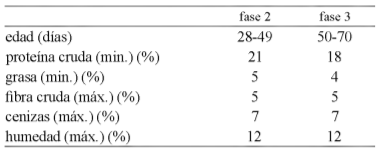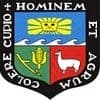Evaluación de la suplementación de creatina sobre el desempeño productivo y variables bioquímicas en lechones al destete
El destete es considerado como el período más estresante en la producción porcina y se asocia con trastornos intestinales, musculares y bajo rendimiento productivo. Estudios demuestran que la suplementación de creatina favorece la síntesis proteica. El objetivo de este trabajo de investigación fue evaluar el efecto de la suplementación de creatina en lechones mediante la medición del rendimiento productivo y pruebas bioquímicas en sangre. El trabajo de investigación se realizó en el Centro Experimental Uyumbicho (CEU) perteneciente a la Facultad de Medicina Veterinaria y Zootecnia de la Universidad Central del Ecuador. Se utilizó un total de 16 lechones (Landrace x Yorkshire x Pietrain x Duroc). Los lechones se distribuyeron de manera aleatoria en cada uno de los 4 tratamientos: T1 = testigo 1 (sin suplemento lácteo), T2 = testigo 2 (suplemento lácteo), T3 = suplemento lácteo + creatina (0.5%), T4 = suplemento lácteo + creatina (1%). Los lechones que recibieron creatina al 1% presentaron el mayor consumo diario de alimento (0.432 kg/ día) y la mayor ganancia diaria de peso (0.336 kg/día) (42 días edad) y la mejor conversión alimenticia (1.288 kg/kg) (62 días de edad). La enzima creatina cinasa presentó el valor más elevado (2007.5 UL) en los lechones del grupo testigo 1. El uso de un sustituto lácteo y la suplementación de creatina mitiga los efectos adversos post-destete en lechones.
Palabras clave: lechones, destete, creatina, suplemento

MATERIAL Y MÉTODOS
RESULTADOS



DISCUSIÓN
1. Boundry C, Dehoux JP, Portetelle D, Buldgen A. 2008. Bovine colostrum as a natural growth promoter for newly weaned piglets: a review. Biotechnol Agron Soc Envir 12: 2, 157-170.
2. Brosnan JT et al. 2009. Creatine synthesis is a major metabolic process in neonatal piglets and has important implications for amino acid metabolism and methyl balance. J Nutr 139: 7, 1292-1297.
3. Cam pbell JM , Crenshaw JD , Polo J. 2013. The biological stress of early weaned piglets. J Anim Sci Biotechnol 4: 1, 19.
4. Cella PS et al. 2020. Creatine supplementation in Walker-256 tumor-bearing rats prevents skeletal muscle atrophy by attenuating systemic inflammation and protein degradation signaling. Eur J N u tr 59: 2, 661-669.
5. C unningham JG , Klein BG. 2014. Fisiología Veterinaria, 5ta ed., Elsevier, Barcelona, p. 298-317.
6. Dinesh OC, Bertolo RF, B runton JA. 2017. Creatine supplementation to total parenteral nutrition improves creatine status and supports greater liver and kidney protein synthesis in neonatal piglets. PediatrRes 83: 1, 135-141.
7. Gresse R et al. 2017. Gut microbiota dysbiosis in postweaning piglets: understanding the keys to health. Trends Microbiol 25: 10, 851-873.
8. G uzik AC, Southern LL, M atthew s JO , Bidner TD, Ladner JP. 2000. Ornithine alpha-ketoglutarate and creatine effects on growth and plasma metabolites of nursery pigs. J Anim Sci 78: 4, 1022-1028.
9. Kluess J, Schoenhusen U, Souffrant WB, Jones PH, M iller BG. 2010. Impact of diet composition on ileal digestibility and small intestinal morphology in earlyweaned pigs fitted with a T-cannula. Animal 4: 4, 586-594.
10. Lalles JP, Bosi P, Sm idt H, Stokes CR. 2007. Nutritional management of gut health in pigs around weaning. Proc N utr Soc 66: 2, 260-268.
11. L eonard SG, Sweeney T, Buhar B, Lynch BP, O’Doherty J V. 2011. Effects of dietary seaweed extract supplementation in sows and post-weaned pigs on performance, intestinal morphology, intestinal microflora and immune status. B r J N utr 106: 5, 688-699.
12. Li JL et al. 2016. Effect of creatine monohydrate supplementation on carcass traits, meat quality and postmortem energy metabolism of finishing pigs. Anim P rod Sci 56: 1, 48-54.
13. M iller E R et al. 1962. Creatine in diet of the baby pig. J Anim Sci 21: 3, 458-460.
14. Moeser AJ, Pohl CS, R ajput M. 2017. Weaning stress and gastrointestinal barrier development: implications for lifelong gut health in pigs. Anim N utr 3: 4, 313-321.
15. N ational Research Council. 2012. Nutrient requirements o f swine, 11th ed., National Academies Press, Washington, p. 289-295.
16. Puskle JR , T urpin DL, Kim JC . 2018. Gastrointestinal tract (gut) health in the young pig. Anim Nutr 4: 2, 187-196.
17. Sestili P et al. 2009. Creatine supplementation prevents the inhibition of myogenic differentiation in oxidatively injured C2C12 murine myoblasts. M ol N utr Food Res 53: 9, 1187-1204.
18. Sestili P et al. New insights into the trophic and cytoprotective effects of creatine in in vitro and in vivo models of cell maturation. Amino Acids 48: 8, 1897-1911.
19. Simon O. 2010. An interdisciplinary study on the mode of action of probiotics in pigs. J Anim Feed Sci 19: 2, 230-243.
20. Solá OD, Gasa J. 2017. Feeding strategies in pig production: Sows and their piglets. Anim Feed Sci Technol 233: 34-52.
21. Souza TC et al. 2012. Cambios nutrimentales en el lechón y desarrollo morfofisiológico de su aparato digestivo. Vet M ex 43: 2, 155-173.
22. Stahl CA, Allee GL, Berg EP. 2001. Creatine monohydrate supplemented in swine finishing diets and fresh pork quality: II. Commercial applications. J Anim Sci 79: 12, 3081-3086.
23. Sugiharto S, H edem ann MS, Lauridsen C. 2014. Plasma metabolomic profiles and immune responses of piglets after weaning and challenge with E. coli. J Anim Sci Biotechnol 5: 1, 17.
24. Vallet JL , Miles JR , Rempel LA. 2013. Effect of creatine supplementation during the last week of gestation on birth intervals, stillbirth, and preweaning mortality in pigs. J Anim Sci 91: 5, 2122-2132.
25. Varley M, W isem an J. 2001. The weaner pig: nutrition and management, 1st ed., CABI, New York, p. 223-243.
26. W ijtten PJ, Meulen J, Verstegen MW. 2011. Intestinal barrier function and absorption in pigs after weaning: a review. B r J N utr 105: 7, 967-981.

















